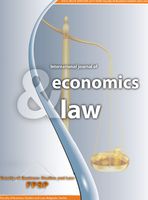Compromise As The Instrument Of Increased Success
Compromise As The Instrument Of Increased Success
Author(s): Yuri Dorosenko, Života Radosavljević, Maja M. AnđelkovićSubject(s): Economy
Published by: Fakultet za poslovne studije i pravo
Keywords: compromise; exclusivity; malignant exclusivity compromise in Serbia
Summary/Abstract: The fact is that we live in a world of great turbulence, interdependence and complexity. Any individual or parts stand in iterative relations with other parts of the organization, or the environment. It turns out that no one is self-sufficient, but that everything is in constant and rapid motion, i.e. in relationship of dependency and causal relationships. In these new circumstances, it is necessary to introduce new concepts and approaches to the organization of joint life and work. It is shown that compromise is one of the best instruments to achieve the above goals, but also to increase business success. In traditional organizations and management compromise was not considered and did not receive proper attention. Exclusivity used to be the dominant style in the design of individual modes of organization, which is natural, because classical organizations were based on antagonism between owners and workers, states and organizations, etc. In these circumstances, any insistence on compromise was considered harmful and a sign of weakness, rather than concept that should increase effectiveness. This paper aims to highlight compromise as a new quality in strategic management of the systems and the necessity of its application in modern conditions, as well as the attitude of the governing elite in Serbia towards compromise.
Journal: International Journal of Economics & Law
- Issue Year: 4/2014
- Issue No: 10
- Page Range: 109-115
- Page Count: 7
- Language: English

